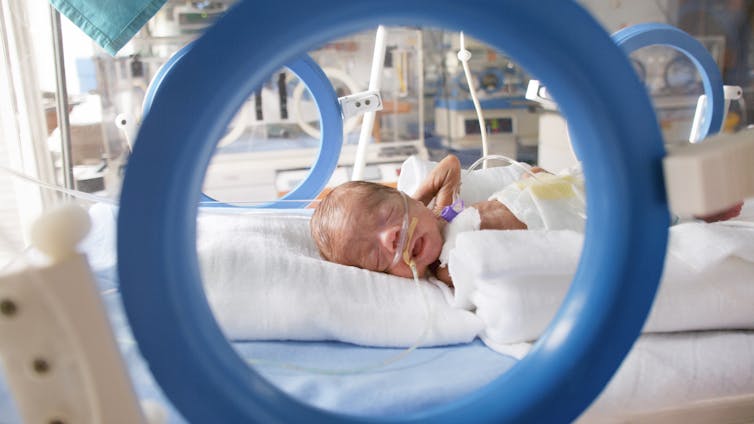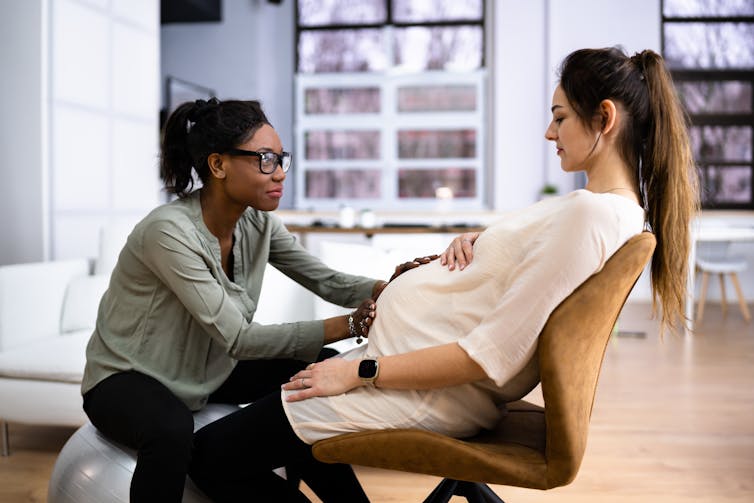
Child Health
5 Steps for Safe Fun in the Summer Sun
Last Updated on September 2, 2025 by Daily News Staff
(Family Features) With an abundance of activities available throughout the summer months, from swimming and hiking to organized sports and spontaneous backyard games, the sunshine leads to fun almost everywhere you look. It’s important to keep in mind a few safety precautions to help enjoy those moments to the fullest, whether your family’s excitement takes place near the water, at the ballpark or around the neighborhood.
Consider this advice from the experts at the American Heart Association for a safe summer.
Stay Hydrated
Hot and humid months lead to more outdoor activities where the warm temperatures may lead to sweating and loss of fluids and electrolytes. Keeping the body hydrated is important for optimal functioning, especially in the heat. Be sure to drink plenty of water by bringing refillable water bottles and containers when summer calls for fun on the go. In addition to drinking plenty of water, you can supplement intake by eating foods with high water content like melons, lettuce and cucumbers. Be aware of the signs and symptoms of mild dehydration, including a dry or sticky mouth, headache, muscle cramps, fatigue or decreased urination. More severe cases may include nausea or vomiting, confusion, dizziness, rapid or irregular heartbeat, rapid breathing, seizures or unconsciousness.
Keep Skin Healthy
Taking steps to protect skin starts before you ever step into the sun, as it may be easy to get caught up in the joys of summer and forget about those damaging rays. Avoiding time spent outdoors in the midday hours helps limit exposure, but it also may not be realistic for busy families with sporting events, pool dates and more. Wearing sunscreen can help reduce the risk of sunburn, skin cancer and early onset of wrinkles; experts recommend using SPF 30 or higher at least 30 minutes before heading into the sun and reapplying at least every two hours throughout long days outdoors. Also consider wearing clothing that protects skin, such as sunglasses, a large-brimmed hat and light, long-sleeved shirts and pants.
Learn CPR
With summer comes rest, relaxation and fun, but it can also bring increased risk with more time spent in the heat and around water. An average of 33 drownings occur in the U.S. each day, according to the Centers for Disease Control and Prevention, with one-third of them proving fatal. Knowing CPR – cardiopulmonary resuscitation – could be the key to saving someone from cardiac arrest or drowning. If performed immediately, it can double or triple a cardiac arrest victim’s chance of survival, according to the American Heart Association. However, only about 40% of people who experience out-of-hospital cardiac arrest receive help before professionals arrive.
Because about 72% of out-of-hospital cardiac arrests happen in homes, you will likely be trying to save the life of someone you love – a family member, spouse, parent or friend – if called upon to perform CPR. Call 9-1-1, or send someone to do so, then push hard and fast in the center of the person’s chest until medical assistance arrives. Use an AED, if available, following the prompts. If you have been trained, have a pocket mask and are willing and able, give breaths as they are important for children and in situations like drowning. You can learn more about Hands-Only CPR and conventional CPR through resources provided due to the national support of Elevance Health Foundation.
Practice Safe Swimming
Splashing and swimming in a favorite pool, lake, river or ocean provides memories for a lifetime, but it can also be dangerous without the proper precautions. One of the most important steps is to ensure children know how to swim and understand it’s not OK to swim alone, even for adults. Wearing life jackets can prevent accidents whether you’re on a boat or in the water and designating an undistracted “water watcher” can help identify a dangerous situation before it develops.
Secure the Pool
Even when it’s not in use, a pool can be a hazard, particularly for families with young children who may be tempted to play while adults aren’t around. Installing fencing with self-closing gates at least 4 feet high around backyard pools can help separate playful children from dangerous situations. Additionally, be sure to stow away pool noodles, toys, floaties and other accessories once pool time is over to keep them out of sight and out of mind; these symbols of fun can cause temptation for little ones and lead them toward the water when there’s no supervision.
Find more ways to keep your family safe this summer by visiting heart.org.
Signs of Heat Stress
When those bright, sunny summer days call you and your loved ones outside, keep in mind these signs of heat illnesses like cramps, exhaustion or heat stroke. Even on days when it doesn’t seem extreme, heat and humidity can take their toll. If you experience any of these symptoms, find shade, take a break and drink water to cool your body temperature. However, if symptoms continue and worsen or do not improve with hydration and cooling, seek medical attention.
- Muscle pain, cramps or spasms
- Heavy sweating or loss of sweating
- Paleness
- Dizziness
- Headache
- Nausea or vomiting
- Confusion
- Fainting or unconsciousness
- High body temperature (greater than 100 F) with dry skin
- Rapid pulse
Photos courtesy of Getty Images
SOURCE:
American Heart Association
Discover more from Daily News
Subscribe to get the latest posts sent to your email.
Child Health
Recognizing the Signs of Pediatric Growth Hormone Deficiency: How Early Recognition and Advocacy Helped One Family Find Answers
Diane Benke noticed her son Alex’s height concerns starting at age 7, despite his pediatrician’s reassurances. After persistent worries, they consulted an endocrinologist, leading to a diagnosis of Pediatric Growth Hormone Deficiency (PGHD). Following treatment changes, including a switch to weekly hormone injections, Alex’s growth improved, allowing the family to focus on their well-being.
Last Updated on February 5, 2026 by Daily News Staff
(Family Features) “Our concerns about Alex’s growth began around the age of 7,” said his mother, Diane Benke.
Though Alex measured around the 50th percentile for weight, his height consistently hovered around the 20th percentile. Benke’s instincts told her something wasn’t quite right.
“I kept asking our pediatrician if this could mean something more,” she said. “Each time, I was reassured that everything was fine. After all, I’m only 5 feet tall myself.”
At first, Benke tried setting her worries aside. Alex was one of the youngest in his class, and she wondered if he could simply be a “late bloomer.”
However, as Alex progressed through elementary school, particularly in the 4th and 6th grades, his height percentile dropped into the single digits. The height difference between Alex and his peers became impossible to ignore.
Despite Benke’s growing concerns, their pediatrician continued to assure them Alex was fine.
“We were told as long as he was making some progress on the growth chart, there was no need to worry,” she said, “but we were never actually shown the charts.”
It wasn’t until one of Benke’s friends confided that her own daughter had recently been diagnosed with Pediatric Growth Hormone Deficiency (PGHD) that she decided to seek an endocrinologist.
“Although it took several months to get an appointment,” Benke said, “we were determined to get more answers.”
Navigating the Diagnosis Process
Getting a diagnosis for many medical conditions can be a long journey. However, early detection and diagnosis of PGHD is important. It can help minimize the impact on overall health and support optimal growth.
Once Alex was seen by a pediatric endocrinologist, he underwent a series of evaluations, including bloodwork, a bone age X-ray to compare his chronological age with his skeletal age and a growth hormone stimulation test, which measures the body’s ability to produce growth hormone. He also had a brain MRI to rule out the potential of any pituitary abnormalities.
The results of these tests confirmed the diagnosis of PGHD, a rare condition that occurs when the pituitary gland does not produce enough growth hormone. PGHD affects an estimated 1 in 4,000-10,000 children.
Some common signs parents might notice include: their child being significantly shorter than other kids their age, slower growth rate over time, delayed puberty, reduced muscle strength or lower energy levels, slower bone development and delayed physical milestones.
“Receiving Alex’s diagnosis was a relief,” Benke said. “It provided clarity and a path forward.”
Moving Forward with Treatment
“While the diagnosis process was exhausting, starting treatment made the process worthwhile,” Benke said.
For decades, daily injections of a drug called somatropin, which is similar to the growth hormone your body produces, have been the standard of care for PGHD. It wasn’t until 2015 that the Growth Hormone Research Society recognized the need for a long-acting growth hormone (LAGH), offering once-weekly dosing as an alternative to daily injections.
Benke explained navigating the insurance approval process was another challenge.
“Our insurance required us to try a daily medication before approving a weekly option,” she said.
Alex spent three months on daily medication, often missing doses, before he was approved to switch to a weekly treatment option.
“The weekly option made such a positive impact,” Benke said. “We now have minimal disruptions to our daily routine and Alex hasn’t missed a single dose since.”
Beyond a more convenient dosing option, the change gave Benke peace of mind.
“We could focus more on being a family again, without the daily worries of his next dose,” she said.
If you’re concerned about your child’s growth, talk to their doctor as soon as possible. Early diagnosis is important, as treatment becomes less effective once a child’s bones stop growing.
Benke’s advice to other parents: “Trust your instincts. If something feels wrong, seek out a specialist and push for answers and don’t give up, even when faced with hurdles… Stay hopeful and persistent – it’s a journey worth fighting for.”
Visit GHDinKids.com to download a doctor discussion guide to help prepare for your next appointment.
SOURCE:
Skytrofa
Discover more from Daily News
Subscribe to get the latest posts sent to your email.
Lifestyle
How to reduce gift-giving stress with your kids – a child psychologist’s tips for making magic and avoiding tears
Reduce gift-giving stress with kids: A child psychologist shares practical rules for stress-free gift giving with kids—how many gifts to give, what holds attention, and how to avoid holiday tears.
Last Updated on January 9, 2026 by Daily News Staff

Dive into “The Knowledge,” where curiosity meets clarity. This playlist, in collaboration with STMDailyNews.com, is designed for viewers who value historical accuracy and insightful learning. Our short videos, ranging from 30 seconds to a minute and a half, make complex subjects easy to grasp in no time. Covering everything from historical events to contemporary processes and entertainment, “The Knowledge” bridges the past with the present. In a world where information is abundant yet often misused, our series aims to guide you through the noise, preserving vital knowledge and truths that shape our lives today. Perfect for curious minds eager to discover the ‘why’ and ‘how’ of everything around us. Subscribe and join in as we explore the facts that matter. https://stmdailynews.com/the-knowledge/
Discover more from Daily News
Subscribe to get the latest posts sent to your email.
health and wellness
Texas cities have some of the highest preterm birth rates in the US, highlighting maternal health crisis nationwide

Texas cities have some of the highest preterm birth rates in the US, highlighting maternal health crisis nationwide
Revealing disparities that drive preterm birth rates
The March of Dimes report scored the U.S. overall a D+ grade on preterm birth rate at 10.4%, but states differ dramatically in their scores. New Hampshire, for example, scored an A- with 7.9% of infants born prematurely, while Mississippi, where 15% of infants are born prematurely, scored an F. Texas’ rates aren’t the worst in the country, but it scores notably worse than the national rate of 10.4%, with 11.1% of babies – 43,344 in total – born prematurely in 2024. And Texas has an especially large effect on the low national score because 10 of the 46 cities that receive a D or F grade – defined in the report as a rate higher than the national rate of 10.4% – are located there. In 2023, Texas had the highest number of such cities in the U.S. That may be in part because access to maternal care in Texas is so limited. Close to half of all counties across the state completely lack access to maternity care providers and birthing facilities, compared with one-third of counties across the U.S. Moreover, more counties in Texas are designated as health professional shortage areas, meaning they lack enough doctors for the number of people living in these areas. Shortages exist in 257 areas in Texas for primary care doctors, 149 for dentists and 251 for mental health providers. But even against the backdrop of geographic differences in health care access, the starkest contribution to the state’s preterm birth rates comes from ethnic and racial disparities. Mothers of non-Hispanic Black (14.7%), American Indian/Alaskan Native (12.5%), Pacific Islander (12.3%) and Hispanic (10.1%) descent have babies prematurely much more often than do mothers who are non-Hispanic white (9.5%) or Asian (9.1%). These numbers reflect the broader landscape of maternal health in the U.S. Although nationwide maternal mortality rates decreased from 22.3 to 18.6 deaths per 100,000 live births from 2022 to 2023, Black women died during pregnancy or within one year after childbirth at almost three times the rate (50.3%) of white (14.5%), Hispanic (12.4%) and Asian (10.7%) women.
Preterm birth in context
Having a baby early is not the normal or expected outcome during pregnancy. It occurs due to complex genetic and environmental factors, which are exacerbated by inadequate prenatal care. According to the World Health Organization, women should have eight or more doctor visits during their pregnancy. Without adequate and quality prenatal care, the chances of reversing the preterm birth trends are slim. Yet in Texas, unequal access to prenatal care remains a huge cause for concern. As the March of Dimes report documents, women of color in Texas receive adequate prenatal care at vastly lower rates than do white women – a fact that holds true in several other states as well. In addition, Texas has the highest uninsured rate in the nation, with 17% of women uninsured for health coverage, compared with a national average of 8%. Nationwide, public health experts, community advocates and families are calling for comprehensive health insurance to help cover the costs of prenatal care, particularly for low-income families that primarily rely on Medicaid for childbirth. Cuts to funding for the Affordable Care Act and Medicaid outlined in the 2025 Budget Reconciliation Act make it likely that more Americans will lose access to care or see their health care costs balloon. But state-level action may help reduce access barriers. In Texas, for example, a set of laws passed in 2025 may help improve access to care before, during and after pregnancy. Texas legislators funded initiatives targeted at workforce development in rural areas – particularly for obstetrician-gynecologists, emergency physicians and nurses, women’s preventive safety net programs, and maternal safety and quality improvement initiatives. Rising rates of chronic diseases, such as hypertension, obesity and diabetes, also contribute to women giving birth prematurely. While working with the state maternal mortality and morbidity review committee, my team and I found that cardiovascular conditions contributed to the 85 pregnancy-related deaths that occurred in 2020. An upward trend in obesity, diabetes and hypertension before pregnancy are pressing issues in the state, posing a serious threat to fetal and maternal health.Learning from other countries
These statistics are grim. But proven strategies to reduce these and other causes of maternal mortality and morbidity are available. In Australia, for instance, maternal deaths have significantly declined from 12.7 per 100,000 live births in the early 1970s to 5.3 per 100,000 between 2021 and 2022. The reduction can be linked to several medical interventions that are based on equitable, safe, woman-centered and evidence-based maternal health services. In Texas, some of my colleagues at Texas A&M University use an equitable, woman-centered approach to develop culturally competent care centered on educational health promotion, preventive health care and community services. Utilizing nurses and nonmedical support roles such as community health workers and doulas, my colleagues’ initiatives complement existing state efforts and close critical gaps in health care access for rural and low-income Texas families. Across the country, researchers are using similar models, including the use of doulas, to address the Black maternal health crisis. Research shows the use of doulas can improve access to care during pregnancy and childbirth, particularly for women of color.
It’s all hands on deck
There isn’t one, single risk factor that leads to a preterm birth, nor is there a universal approach to its prevention. Results from my work with Black mothers who had a preterm birth aligns with what other experts are saying: Addressing the maternal health crisis in the U.S. requires more than policy interventions. It involves the dismantling of system-level and policy-driven inequities that lead to high rates of preterm births and negative pregnancy and childbirth outcomes, particularly for women of color, through funding, research, policy changes and community voices. Although I had my preterm birth in Nigeria, my story and those shared by the Black mothers I have worked with in the U.S. show eerily similar underlying challenges across different settings. Kobi V. Ajayi, Research Assistant Professor of Maternal and Child Health, Texas A&M University This article is republished from The Conversation under a Creative Commons license. Read the original article.Discover more from Daily News
Subscribe to get the latest posts sent to your email.
